Embarking on the journey of mobile app development is an exhilarating endeavor, but it’s accompanied by the daunting task of navigating through the financial complexities. In such a scenario, a reliable mobile app cost calculator emerges as a beacon of clarity, providing invaluable insights into the financial landscape of your project.
When figuring out the cost breakdown of building a mobile app, several factors come into play. Firstly, the complexity of the app plays a significant role in determining costs. Basic apps with limited features will naturally cost less to develop than complex applications with advanced functionalities and integrations. Additionally, the platform(s) targeted for development, such as iOS, Android, or both, will impact costs due to differences in development tools, programming languages, and design considerations. Furthermore, factors like user authentication, data storage requirements, third-party API integrations, and design complexity all contribute to the overall cost breakdown of building a mobile app.
As for estimating costs, it’s essential to consider both upfront development expenses and ongoing maintenance and support costs. Upfront costs typically include expenses related to design, development, testing, and deployment of the app. On the other hand, ongoing costs may include maintenance, updates, hosting fees, and any additional features or integrations post-launch. By carefully considering these factors and working closely with a development team to understand project requirements, businesses can arrive at a comprehensive cost breakdown that aligns with their budget and objectives.
– Upfront Development Cost: (Depending on app complexity and features)
– Ongoing Maintenance & Support: (Estimated based on project requirements)
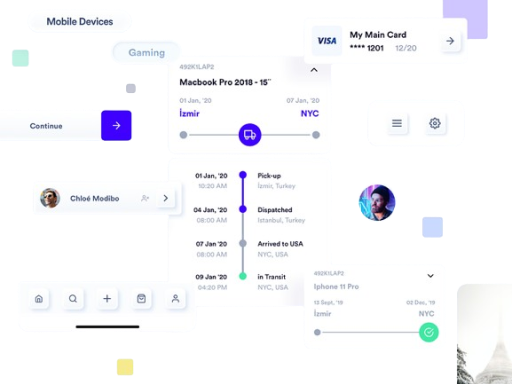

When planning the cost breakdown for building a mobile app, it’s crucial to strike a balance between quality, functionality, and budget. By carefully considering all project requirements and potential expenses, businesses can ensure that they have a clear understanding of the investment needed to bring their app idea to life and sustain its success in the long run. Additionally, working with an experienced development team can provide valuable insights and guidance throughout the process, helping to optimize costs while delivering a high-quality and competitive app in the marketplace.
An accurate estimate is essential for building an app because it lays the foundation for effective project planning, budgeting, and resource allocation. With a precise understanding of the development costs upfront, businesses can make informed decisions regarding project scope, feature prioritization, and timeline expectations. This ensures that the development process stays on track, minimizing the risk of budget overruns, scope creep, and project delays. An accurate estimate enables businesses to allocate resources efficiently, optimize investment decisions, and set realistic expectations for stakeholders. By obtaining a clear and comprehensive estimate at the outset, businesses can embark on the app development journey with confidence, knowing that they have a solid roadmap for success.
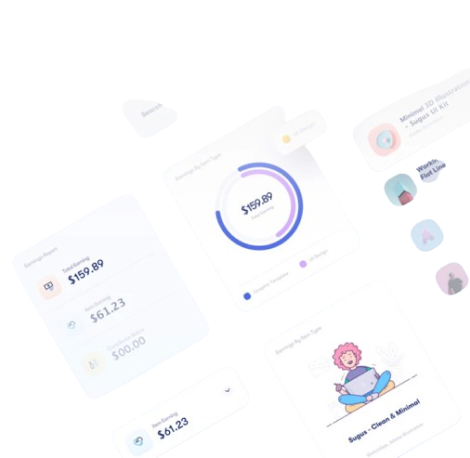
The cost of developing a mobile app is a multifaceted equation influenced by various factors:

The complexity and breadth of features integrated into your app directly impact development costs. From basic functionalities to advanced features, each element adds to the overall expense.

Customized designs and user interfaces tailored to your app's identity may incur additional expenses. While investing in visually appealing and intuitive design can enhance user engagement, it's essential to weigh the associated costs.

Choosing between iOS, Android, or cross-platform development entails different cost implications. Each platform has its unique development intricacies and expenses, necessitating careful consideration to align with your budgetary constraints. By obtaining precise insights into the financial scope of your project upfront, you can steer clear of budgetary storms and chart a course that leads to your app's success.
Building an effective app developer team requires careful consideration of various roles and expertise.

Project Manager: Oversees the development process, manages resources, and ensures that the project is delivered on time and within budget.

Frontend Developer: Responsible for implementing the user interface and user experience design using HTML, CSS, and JavaScript.

Backend Developer: Builds the server-side logic, databases, and APIs necessary for the app's functionality, typically using languages like Python, Java, or Node.js.

UI/UX Designer: Creates wireframes, mockups, and prototypes to ensure an intuitive and visually appealing user interface and experience.

Quality Assurance Engineer: Tests the app to identify bugs, defects, and performance issues, ensuring a high-quality product before release.
Our app platform offers a versatile and user-friendly solution for businesses looking to develop and deploy mobile applications across various platforms. With a focus on scalability, reliability, and performance, our platform empowers developers to create feature-rich apps that deliver exceptional user experiences. From intuitive drag-and-drop interfaces to seamless integration with backend systems, our platform streamlines the app development process, enabling teams to bring their ideas to life quickly and efficiently.
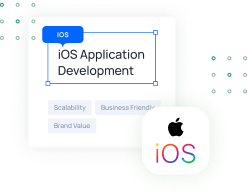
Contrary to popular belief, iOS app development is not necessarily more affordable than Android. While it’s true that developing an app for iOS can sometimes be less expensive due to factors like fewer device variations and a more streamlined development process, the overall cost depends on various factors. For instance, the complexity of the app, desired features, design intricacies, and integration requirements all play a significant role in determining development costs. Additionally, market research and target audience analysis may reveal that investing in iOS development provides better ROI despite potentially higher upfront costs.
The affordability of iOS development compared to Android can vary depending on the specific project requirements and the expertise of the development team. Skilled iOS developers may command higher rates, impacting the overall cost of development. Therefore, while iOS development may offer certain advantages in terms of simplicity and consistency, businesses should carefully evaluate their objectives, target audience, and budget constraints to determine the most cost-effective platform for their app development endeavors.
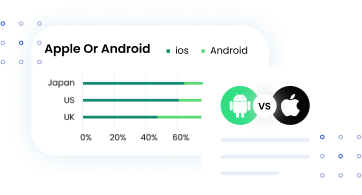
Considering your user base is crucial for app development success. Understanding the demographics, preferences, and behaviors of your target audience allows you to tailor the app experience to their needs, increasing user satisfaction and engagement. By conducting thorough user research and gathering feedback throughout the development process, you can ensure that your app resonates with your audience, drives adoption, and ultimately achieves its intended goals. Whether it’s optimizing features, refining the user interface, or personalizing content, prioritizing your user base enables you to create a compelling app that stands out in a competitive market landscape.
The decision of whether users need to log in to use your app depends on its functionality and the user experience you aim to provide. Implementing a login feature can enhance security, personalize user experiences, and enable access to additional features.

Associated costs for implementing a login feature in your app may include development time, infrastructure setup, and ongoing maintenance. Factors such as authentication method (e.g., email/password, social media login), security measures (e.g., encryption, two-factor authentication), and integration with backend systems can impact costs. Additionally, consider usability testing and user feedback collection to ensure a seamless login experience. While implementing a login feature may incur initial expenses, it can enhance user engagement, enable personalized features, and contribute to long-term app success.

User login allows you to personalize the app experience based on user preferences, behavior, and past interactions, enhancing user engagement and satisfaction.

Login features enable you to secure user data and protect sensitive information through authentication methods such as email/password, biometric verification, or social media login.

User login grants access to user profiles and data, enabling features like saved preferences, purchase history, and personalized recommendations.

With login options, users can access account-specific features, participate in loyalty programs, and receive targeted notifications, fostering increased interaction and loyalty.

Focus on delivering tangible value while minimizing time-to-market.

Ensure scalability, reliability, and user-friendliness in MVP development.

Leverage cutting-edge technologies and industry best practices for optimal results.

. Provide comprehensive support and guidance throughout the MVP development journey.

Maintain transparent communication to keep clients informed and involved.

Lay the groundwork for future iterations and long-term product success with MVP solutions.
Email and social media login options can offer convenience, they are not inherently more secure than other authentication methods. Security vulnerabilities such as password breaches, phishing attacks, and social engineering can compromise user accounts, highlighting the importance of implementing robust security measures and educating users about safe login practices.

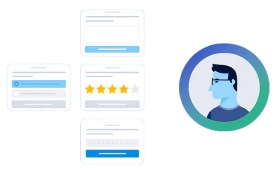
Whether users need to create profiles depends on the app’s functionality and objectives. Offering profile creation can enhance personalization, enable access to account-specific features, and facilitate communication and engagement within the app. However, mandating profile creation may deter some users who prefer to use the app anonymously or without sharing personal information. Therefore, it’s essential to carefully consider the necessity and benefits of profile creation in relation to the app’s user experience and goals.